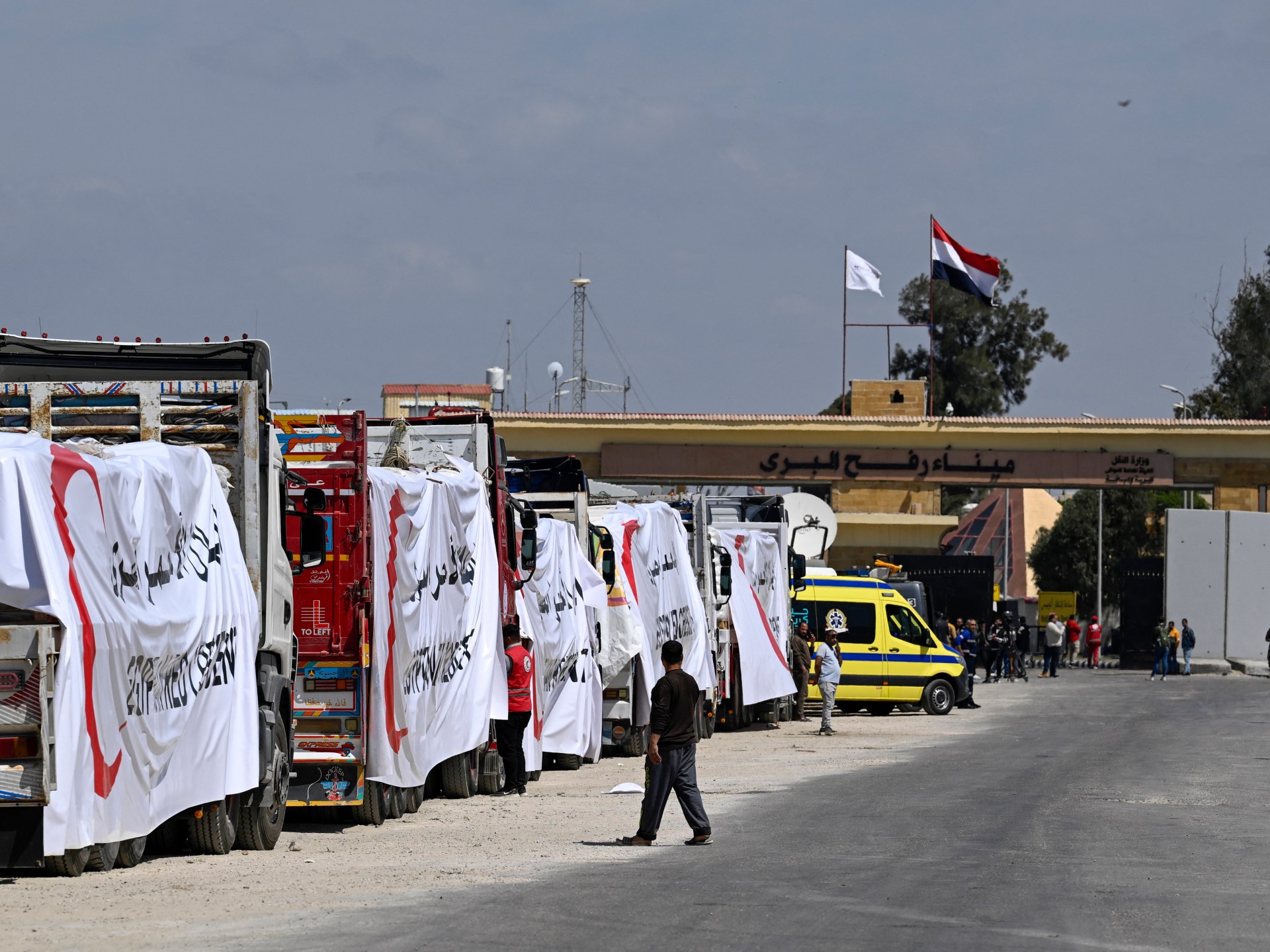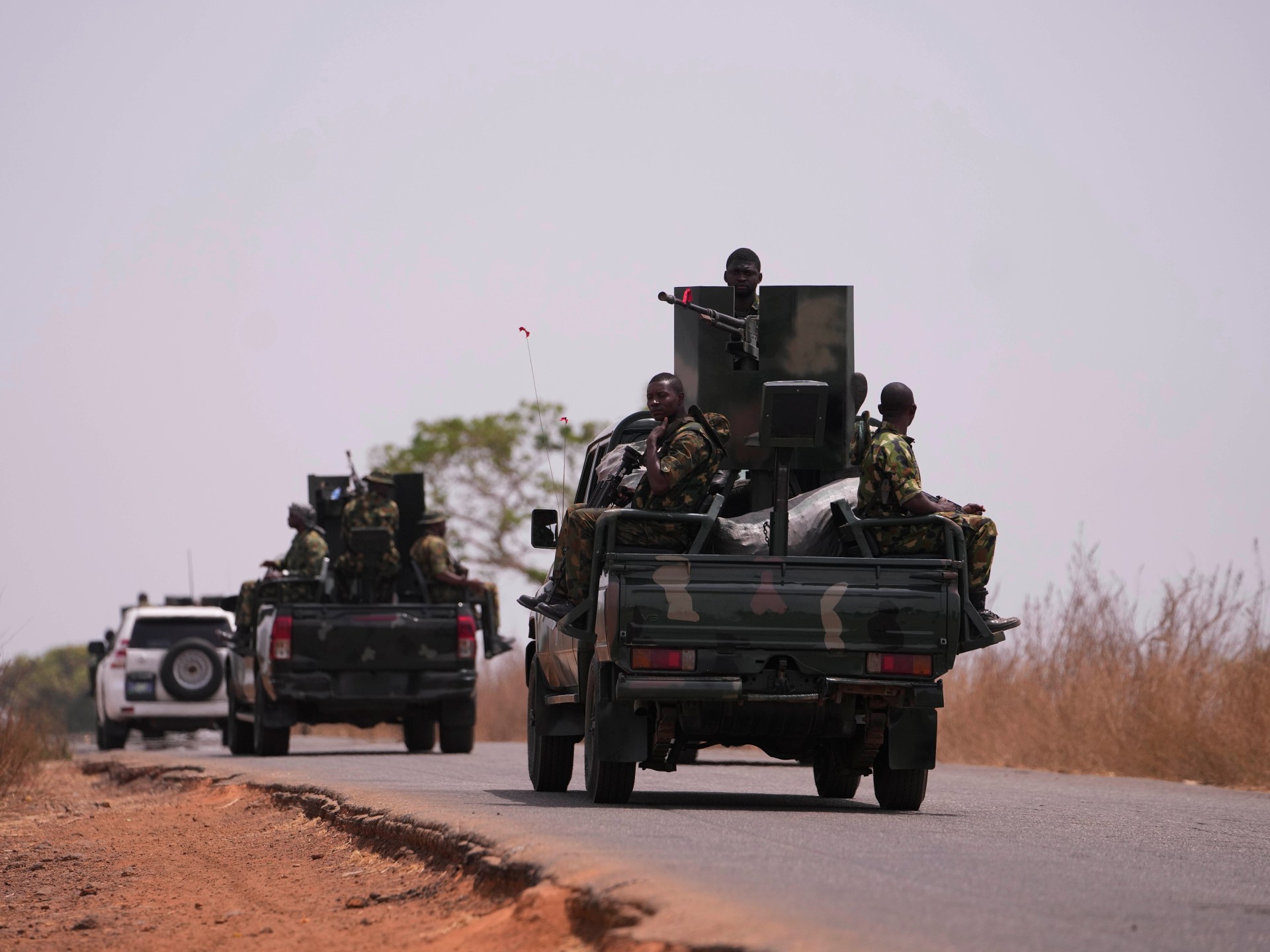Trump’s meeting with Sharaa, unthinkable just months ago, boosts Syrians’ hopes
Donald Trump has said his administration is now exploring the possibility of normalising relations with Syria – his comments coming shortly after he met Syria’s interim President Ahmed al-Sharaa, whose forces ended the decades-long dictatorship of the Assad family.
The extraordinary encounter, unthinkable just months ago, was short but significant.
“I think he has got the potential,” Trump remarked after his meeting in Riyadh, 37 minutes long, with the former Syrian fighter formerly linked to Al-Qaeda.
The $10m US bounty on his head was only lifted in December.
Video footage of their conversation in a lavish Saudi royal palace showed some initial awkwardness as they spoke through a translator.
A beaming Saudi Crown Prince, Mohammad bin Salman, sat next to them. The Turkish President Recep Tayyip Erdogan joined them by telephone.
Trump acknowledged it was these two leaders who had convinced him to also lift the US’s punishing Syria sanctions.
His sudden announcement on Tuesday night at a major US-Saudi investment forum in Riyadh won him a standing ovation. It was a volte-face after his many previous posts on social media that the US had “no interest in Syria”.
“Tough guy, very strong past,” is how Trump later described Sharaa to journalists travelling with his high-powered American delegation on his first official four-day tour.
It was a very Trump gloss about Sharaa’s old links to al-Qaeda. His Islamist group, Hayat Tahrir al-Sham (HTS), was al-Qaeda’s affiliate in Syria until he severed ties in 2016. HTS is still designated as a terrorist organisation by the UN, US and UK.
Since assuming power in December, Sharaa has been wearing Western business suits and trying to present himself as a president for all Syrians.
“It’s a new light at the end of this tunnel,” exclaimed Hind Kabawat, minister of social affairs and labour, in the interim government.
She told the BBC’s Newshour programme they had been calling for sanctions relief ever since their “Liberation Day”.
The US decision sparked celebrations across a county where 90% of Syrians are said to be living in poverty, after more than a decade of civil war and profound suffering.
Removing restrictions which cut Syria off from the international financial system will enable greater engagement by aid agencies and encourage foreign investment and trade.
“We are the North Korea of the Middle East,” a hotel receptionist in Damascus told me last December when I asked for another electronic hotel key.
He tearfully lamented that “we don’t have enough cards, we have shortages of everything”.
It may also help convince some of the millions of Syrians living in exile to think more seriously about returning home. And it could help a fledgling government to pay salaries, begin to rebuild, and address the growing discontent over the privations of daily life.
But dismantling the vast web of sanctions now strangling Syria will take time.
“Some sanctions can be removed immediately using presidential waivers,” commented Dina Esfandiary of Bloomberg Economics.
“But lifting the multi-layered sanctions won’t be easy and will require real commitment by the Trump administration.”
I remember travelling to Tehran in the wake of the 2015 Iran nuclear deal and the Obama administration’s commitment to ease sanctions there.
At the news conference with the visiting EU’s high representative for foreign policy, Iranian journalists kept asking, with palpable anguish, why it was still impossible for them even to open a bank account.
Syria’s new friends, including regional powers like Saudi Arabia and Turkey, now positioning themselves to shape the new Syria, will need to ensure Trump and his team stay interested.
But he’s made it clear he expects something in return if there is to be a full normalisation of relations. The first item on his list is “join the Abraham Accords”.
The US president regards this process of normalisation with Israel, which several Arab states including the United Arab Emirates has joined, as one of his foreign policy achievements in his first term.
Sharaa, praised by his friends as pragmatic, has already signalled that he understand the importance of building a working relationship with his neighbour, even though Israel continues to bomb what it calls “terrorist targets” – air bases, military installations and weapons depots – insisting they could “fall into the wrong hands”.
Last month, the Syrian leader reportedly told a visiting US congressman, Cory Mills, that Syria was prepared to normalise ties with Israel and join the Abraham Accords under “the right conditions”.
Israeli media have reported that Prime Minister Benjamin Netanyahu had urged President Trump not to lift sanctions. He remains suspicious of Sharaa and his HTS forces, as well other groups which include foreign fighters in their ranks.
Removing foreign fighters is another of Washington’s demands; it’s one of the very many challenges now facing Syria’s leader.
President Trump hailed this moment as “a chance at greatness”. Millions of Syrians just welcome a greater chance that their lives will finally start changing for the better.
Check out our Latest News and Follow us at Facebook
Original Source







